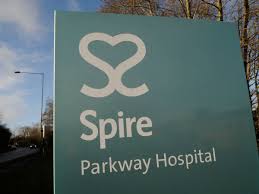Source: birminghammail.co.uk
An ‘outgoing’ mum-of-two tragically died just a day after life-changing liposuction surgery for a poorly-understood condition.
Renee Brooks, 50, travelled all the way from America for complex liposuction for lipoedema at Spire Parkway Hospital in Solihull on August 29 last year.
The 50-year-old was at the end of her fifth operation with specialist surgeon Anne Dancey when a ‘rare and recognised’ complication sparked a cardiac arrest on the operating table.
She was given CPR in theatre before being taken to the intensive care unit at Heartlands Hospital – as Spire no longer have the facilities. But a day later, on August 30, she died.
Mrs Brooks had been fighting a lifelong battle with lipoedema, a chronic condition characterised by a build-up of fat cells in the legs, buttocks, thighs and sometimes arms.
Her condition, for which the only cure is liposuction, is thought to affect 11 per cent of women but it is often wrongly misunderstood as obesity.
The housewife, born in Mississippi, USA, had already undergone four operations to remove fat cells from her body in a desperate bid to improve her debilitating condition further.
Her recoveries for surgery in June, July and August 2018 had gone well, but she was said to have struggled more with healing from the fourth op in January 2019.
Husband John Brooks, who flew over to Birmingham for the final hearing, told the coroner’s court: “The first three went really really well.
“The fourth one the surgery went really well but my wife had some issues with recovery. She was somewhat protective of how much I knew.
“She is a very smart person. She did do a great deal of research. She felt that the risks were very, very low. At least that’s what she conveyed to me.
“She was told there was a small risk of injury or death. She spoke so highly of Ms Dancey and she put her trust in her.”
Pathologist Dr Andrew Warfield recorded Mrs Brooks cause of death as multiple organ failure due to fat embolism syndrome – where fat globules get into the blood stream – and large volume liposuction.
He added obesity as part of the cause of death, but the coroner later instructed this to be removed from the record as it would be ‘misleading’.
During the postmortem, it was discovered that Mrs Brooks had an enlarged heart. While this did not cause her death, it made it harder for her to cope with the fat embolism syndrome which others perhaps could have survived.
“It was a recognised but rare complication. These are complications that would occur even in the best hands, even in the best units, even in the best circumstances,” Dr Warfield told the inquest.
“It appears to have been an inadvertent complication, it was a sudden and unexpected death at the end of the procedure. If she hadn’t have had the procedure she would not have died in that manner and at the time she did.”
Surgeon Ms Dancey, who has performed 600 successful liposuction surgeries for lipoedema in five years and has “one of the largest experiences with it worldwide”, was suspended while an investigation was carried out.
While it was noted that some equipment to measure hemoglobin was not available, no medical negligence or neglect was found by the coroner.
Interim guidelines regarding the volume of fat surgeons can take have been put in place at Spire for the ‘safety of patients.’
Conferences are due to be held in a bid to draft new guidelines for complex liposuction surgery for lipoedema – including reviewing the amount of adrenaline used in surgery to reduce blood loss.
Recording a narrative conclusion, Area Coroner James Bennett said: “I have heard evidence from two senior consultants, Dr Rees and Ms Dancey – who is a leading surgeon in her field conducting niche and highly specialised surgery for patients with lipoedema.
“I was impressed with their evidence. Dr Warfield originally included the word cosmetic in his findings. I think it is right not to describe the procedure as cosmetic.
“The four operations she had resulted in a significant improvement in her quality of life. There was clear and medical justification for the procedure being undertaken.
“The issue of consent was raised. She was well researched and in her husband’s view, familiar with the procedure and the risks. Mrs Brooks would have been familiar with [Ms Dancey’s] website and the number of risks including fat embolism syndrome.
“I’m in no doubt she fully consented. It is agreed there is no known guidance for lipoedema liposuction. I have heard that in Canada and America, there is some guidance but it seems to be more cosmetic.”
Mr Bennett added that he would be writing a prevention of future deaths report to the leading organisations for lipoedema to address concerns over the lack of guidance for the surgery.
“I hope this can bring about guidance to ensure that these procedures are carried out in a unified way. I hope there is some comfort in that regarding that some good may come of your wife’s death,” the coroner added.
Mr Brooks welcomed the changes to the guidelines, but hit back at what he branded were ‘mistakes’ and called for a better understanding of the condition worldwide.
Speaking after the verdict, he said: “We all need to do better. It’s pretty obvious that there were mistakes.
“Obviously they were not prepared for that type of emergency. Had there been a full ICU in place, would that have made a difference or not we will never know.
“They were ill-prepared for what happened. The main thing is that they learn that they should have been better prepared.
“It was affecting her mobility quite a lot and this was the only way to remove it.
“This needs to be addressed and not seen as cosmetic. I’m very much in favour of them forming better safety guidelines.”
